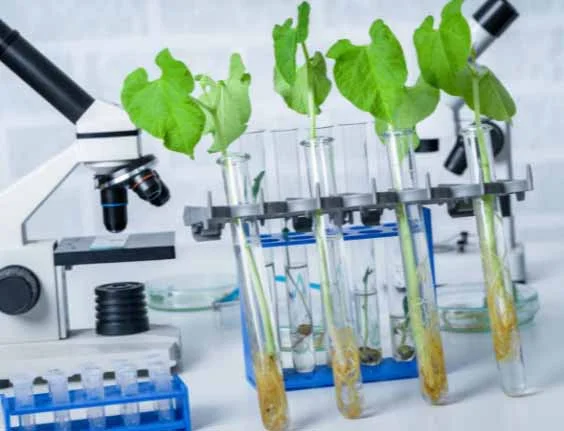Unlocking Food Security Through Biotechnology
The ever-growing global population and the pressing need to ensure a sustainable food supply have placed food security at the forefront of agricultural priorities. In this era of rapid technological advancements, biotechnology has emerged as a powerful tool to address the challenges faced by modern agriculture. By leveraging the potential of biotechnology, farmers and scientists are revolutionizing the way food is produced, ultimately enhancing food security worldwide.
The Power of Biotechnology in Agriculture
Biotechnology refers to the use of living organisms or their parts to create and improve products, processes, or systems. In the context of agriculture, biotechnology is transforming every aspect of crop production, from breeding and genetic modification to pest and disease management. By harnessing the power of biotechnology, farmers are able to optimize crop yields, increase resistance to pests and diseases, and develop crops with enhanced nutritional value.
One of the key contributions of biotechnology in agriculture is genetic modification. Through the precise manipulation of an organism’s genetic material, scientists can introduce desirable traits into crops. For example, by incorporating genes that confer resistance to specific pests or diseases, crops can better withstand attacks, resulting in higher yields and reduced reliance on chemical pesticides. Moreover, biotechnology allows the creation of crops with enhanced nutritional content, helping combat malnutrition and related health issues in vulnerable populations.
The Role of Biotechnology in Sustainable Farming
Sustainability lies at the heart of modern agricultural practices. Biotechnology plays a crucial role in promoting sustainable farming by reducing the environmental impact of agriculture and optimizing resource usage. By developing genetically engineered crops that require fewer pesticides and fertilizers, biotechnology minimizes chemical runoff into water bodies and reduces the overall ecological footprint of farming.
Biotechnology also aids in the development of crops that are better adapted to withstand challenging environmental conditions. With climate change posing significant risks to food production, biotech-enabled crops that are more resistant to drought, salinity, or extreme temperatures offer a glimmer of hope for maintaining stable agricultural systems and ensuring food security in the face of changing climatic conditions.
Biotechnology: A Path to Increased Productivity
In a world where arable land availability is shrinking, biotechnology offers the potential to maximize productivity without expanding agricultural land. Through biotech-driven innovations such as precision agriculture, farmers can optimize the use of resources such as water, fertilizers, and energy. This not only reduces the cost of production but also minimizes the environmental impact associated with excessive resource use.
Furthermore, biotechnology is driving advancements in crop breeding techniques such as marker-assisted selection, speeding up the development of improved crop varieties. These techniques enable breeders to select plants with specific desirable traits at an early stage, making the breeding process more efficient and reducing the time required for new varieties to reach the market. This accelerated breeding process contributes to increased productivity and ensures that farmers have access to crops that are better suited to local growing conditions.
Enhancing Food Security with Biotechnology
In conclusion, biotechnology is revolutionizing agriculture and playing a pivotal role in enhancing global food security. By harnessing the power of biotechnology, farmers and scientists can increase crop yields, develop more resilient crops, and improve the nutritional content of food. Sustainable farming practices, resource optimization, and accelerated breeding techniques further contribute to the goal of ensuring a sustainable and abundant food supply for future generations.
To learn more about the exciting advancements in agricultural biotechnology, you can explore reputable sources like FAO, the Food and Agriculture Organization of the United Nations, or NCBI, the National Center for Biotechnology Information. Stay informed, embrace innovation, and join the journey towards a more secure and sustainable food future.

